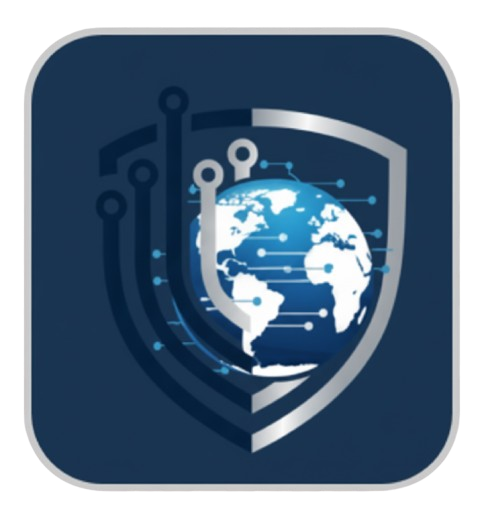IMPORTANT NOTICE
This comprehensive guide provides cybersecurity best practices and analysis based on industry threat intelligence and ransomware attack trends. Statistics and specific scenarios referenced are based on industry reports and threat intelligence. For the most current information, visit CISA Cybersecurity Advisories and FBI IC3.
Last Updated: November 5, 2025
Ransomware attacks represent one of the most significant cybersecurity threats facing Massachusetts businesses. According to threat intelligence reports, ransomware attacks continue to target organizations across all industries, causing operational disruptions, financial losses, and data breaches.
This comprehensive guide provides Massachusetts businesses with actionable cybersecurity strategies to protect against ransomware attacks, based on threat intelligence reports, federal guidance, and industry best practices.
TABLE OF CONTENTS
- Understanding the Ransomware Threat Landscape
- Common Ransomware Attack Methods
- Comprehensive Protection Strategies
- Incident Response and Recovery
- Regulatory Compliance Requirements
- Resources and Support
- Conclusion and Next Steps
UNDERSTANDING THE RANSOMWARE THREAT LANDSCAPE
Ransomware attacks encrypt data and systems, demanding payment for decryption. According to threat intelligence reports, ransomware attacks have become increasingly sophisticated and targeted, affecting organizations of all sizes.
Why Businesses Are Targeted
Primary Target Characteristics:
- Valuable Data: Customer records, financial information, and business data
- Operational Dependence: Businesses dependent on IT systems for operations
- Financial Resources: Ability to pay ransom demands
- Limited Security: Small and medium businesses with limited security resources
- Third-Party Access: Supply chain and vendor relationships
Threat Intelligence Overview
According to threat intelligence reports and federal law enforcement analysis, ransomware attacks continue to pose significant threats to businesses. Federal agencies including the FBI and CISA have issued warnings about ransomware threats.
Sources: CISA Cybersecurity Advisories | FBI IC3 Reports | CISA Stop Ransomware
COMMON RANSOMWARE ATTACK METHODS
Ransomware attacks use various methods to gain access to systems and encrypt data. Understanding these methods is essential for developing effective defense strategies.
1. Phishing and Email Attacks
Phishing emails are the most common initial attack vector:
- Malicious email attachments containing ransomware
- Links to malicious websites hosting ransomware
- Social engineering to trick users into downloading malware
- Business email compromise attacks
2. Remote Desktop Protocol (RDP) Exploitation
Attackers exploit vulnerable RDP connections:
- Brute force attacks on RDP credentials
- Exploitation of unpatched RDP vulnerabilities
- Compromised RDP credentials from previous breaches
- Weak RDP authentication
3. Software Vulnerabilities
Attackers exploit unpatched software vulnerabilities:
- Unpatched operating systems
- Vulnerable software applications
- Zero-day exploits
- Legacy systems without security updates
4. Supply Chain Attacks
Ransomware delivered through compromised vendors:
- Compromised software updates
- Third-party service provider breaches
- Malicious software from vendors
- Compromised managed service providers
Source: CISA Stop Ransomware
COMPREHENSIVE PROTECTION STRATEGIES
Implementing comprehensive cybersecurity measures is essential for protecting against ransomware attacks. The following strategies are based on CISA guidelines, NIST Cybersecurity Framework, and industry best practices.
IMMEDIATE PROTECTION MEASURES (Implement This Week)
1. Backup Systems
- Implement comprehensive backup systems with offline storage
- Store backups in multiple geographic locations
- Test backup restoration procedures regularly
- Protect backups from ransomware encryption
2. Multi-Factor Authentication (MFA)
- Enable MFA on all accounts, especially email and administrative systems
- Use authenticator apps rather than SMS when possible
- Require MFA for remote access and RDP connections
- Implement MFA for cloud services
3. Email Security
- Implement advanced email security filtering
- Configure DMARC, SPF, and DKIM email authentication
- Enable email banner warnings for external messages
- Conduct phishing simulation campaigns
4. Software Updates
- Implement automatic security updates where possible
- Conduct regular vulnerability scanning
- Patch critical vulnerabilities within 48 hours
- Maintain an inventory of all software and systems
MEDIUM-TERM IMPROVEMENTS (Next 30 Days)
1. Endpoint Protection
- Endpoint Detection and Response (EDR): Deploy EDR solutions on all endpoints
- Antivirus Software: Maintain up-to-date antivirus protection
- Application Whitelisting: Implement application whitelisting where appropriate
- Device Management: Manage and secure all devices
2. Network Security
- Network Segmentation: Segment networks to limit lateral movement
- Firewall Configuration: Implement and configure firewalls
- Network Monitoring: Deploy network traffic monitoring
- RDP Security: Secure or disable RDP when not needed
3. Security Awareness Training
- Employee Training: Conduct regular security awareness training
- Phishing Simulations: Test employee awareness with simulated phishing campaigns
- Incident Response Training: Train IT and security teams on incident response
- Executive Briefings: Educate leadership on ransomware risks
LONG-TERM STRATEGIC IMPROVEMENTS (Next 90 Days)
1. Advanced Security Technologies
- Security Information and Event Management (SIEM): Implement SIEM for centralized monitoring
- Behavioral Analytics: Deploy user and entity behavior analytics
- Threat Intelligence: Integrate threat intelligence feeds
- Automated Response: Implement security orchestration and automation
2. Compliance and Governance
- Risk Assessments: Conduct comprehensive cybersecurity risk assessments
- Security Policies: Develop and maintain security policies
- Compliance Audits: Regular compliance audits
- Executive Reporting: Regular cybersecurity reporting to leadership
INCIDENT RESPONSE AND RECOVERY
Having a comprehensive incident response plan is critical for ransomware attacks. The following protocols are based on CISA guidance and industry best practices.
IMMEDIATE RESPONSE STEPS (First 24 Hours)
Step 1: Detection and Assessment
- Identify the nature and scope of the ransomware attack
- Assess the potential impact on operations and data
- Activate incident response team and procedures
- Document all evidence and maintain chain of custody
Step 2: Containment
- Isolate affected systems from the network
- Prevent further spread of the ransomware
- Preserve evidence for forensic analysis
- Implement temporary operational workarounds
Step 3: Notification
- Notify internal leadership and board members
- Contact law enforcement (FBI: 1-800-CALL-FBI)
- Notify CISA (central@cisa.dhs.gov or 1-888-282-0870)
- Notify Massachusetts Attorney General if required
- Engage legal counsel and public relations teams
RECOVERY PROCEDURES
Recovery from ransomware attacks requires careful planning:
- Backup Restoration: Restore systems from clean backups
- System Verification: Verify system integrity before restoration
- Security Enhancement: Implement enhanced security before restoration
- Monitoring: Monitor systems for signs of reinfection
Important: The FBI recommends against paying ransom demands. Paying ransoms does not guarantee data recovery and may encourage further attacks.
Source: CISA Stop Ransomware | FBI IC3
REGULATORY COMPLIANCE REQUIREMENTS
Massachusetts businesses must comply with various regulatory requirements for protecting data and reporting incidents.
Massachusetts State Requirements
Massachusetts businesses must comply with 201 CMR 17.00: Standards for Protection of Personal Information:
- Written comprehensive information security program
- Encryption of personal information
- Firewall protection
- Security software and patches
- Employee training
- Access controls
- Monitoring systems
- Incident response procedures
Resource: 201 CMR 17.00 Regulations
RESOURCES AND SUPPORT
Massachusetts businesses can access various resources for protecting against ransomware attacks.
GOVERNMENT RESOURCES
Federal Agencies:
- CISA 24/7 Operations Center: 1-888-282-0870
- CISA Stop Ransomware: www.cisa.gov/stopransomware
- CISA Cybersecurity Advisories: Cybersecurity Advisories
- FBI IC3: www.ic3.gov
- FBI Cyber Division: Contact local FBI field office
Massachusetts State Agencies:
- Massachusetts Attorney General: Data Breach Reporting
- Massachusetts Emergency Management Agency (MEMA): (617) 727-2200
EDUCATIONAL RESOURCES
- CISA Resources: Cybersecurity Resources and Tools
- CISA Stop Ransomware: Stop Ransomware Guide
- NIST Cybersecurity Framework: Framework for Improving Critical Infrastructure Cybersecurity
- FBI IC3: Internet Crime Complaint Center
CONCLUSION: PROTECTING MASSACHUSETTS BUSINESSES FROM RANSOMWARE
Protecting Massachusetts businesses from ransomware attacks requires comprehensive security measures, ongoing vigilance, and coordination with federal law enforcement agencies. By implementing the strategies outlined in this guide, businesses can significantly reduce their cybersecurity risk.
The key is to start today, prioritize based on your unique risk profile, and maintain vigilance as threats evolve. Regular security monitoring, employee training, and coordination with federal agencies are essential components of an effective ransomware protection program.
KEY TAKEAWAYS
- Backup Everything: Implement comprehensive backup systems with offline storage
- Enable MFA: Use multi-factor authentication on all accounts
- Train Your Team: Provide ongoing security awareness training
- Patch Regularly: Keep all software and systems updated
- Plan for Incidents: Develop and test incident response procedures
- Report Incidents: Report ransomware attacks to FBI and CISA
- Never Pay Ransoms: The FBI recommends against paying ransom demands
IMMEDIATE NEXT STEPS
For Massachusetts Businesses:
- This Week:
- Verify backup systems are working and test restoration
- Enable multi-factor authentication on all accounts
- Implement email security filtering
- Conduct security awareness training
- This Month:
- Conduct comprehensive security risk assessment
- Develop or update incident response plan
- Deploy endpoint detection and response
- Implement network segmentation
- Ongoing:
- Monitor CISA and FBI advisories regularly
- Maintain security controls and monitoring
- Provide ongoing security training
- Participate in information sharing programs
Stay Protected
Subscribe to CyberUpdates365 for real-time cybersecurity intelligence and expert guidance on protecting Massachusetts businesses from ransomware attacks.
Receive breaking news updates, detailed threat analyses, and actionable security recommendations delivered directly to your inbox.
RELATED ARTICLES
- Complete Guide to Cybersecurity Threats in Massachusetts
- Massachusetts Critical Infrastructure Cybersecurity Guide
- Massachusetts Healthcare Cybersecurity: Lessons from Ransomware Attacks
Updated on November 5, 2025 by CyberUpdates365 Team
This guide provides general cybersecurity information and does not constitute legal or technical advice. Consult with qualified cybersecurity professionals and legal counsel for guidance specific to your organization. For the most current threat intelligence, visit CISA Stop Ransomware and FBI IC3.

